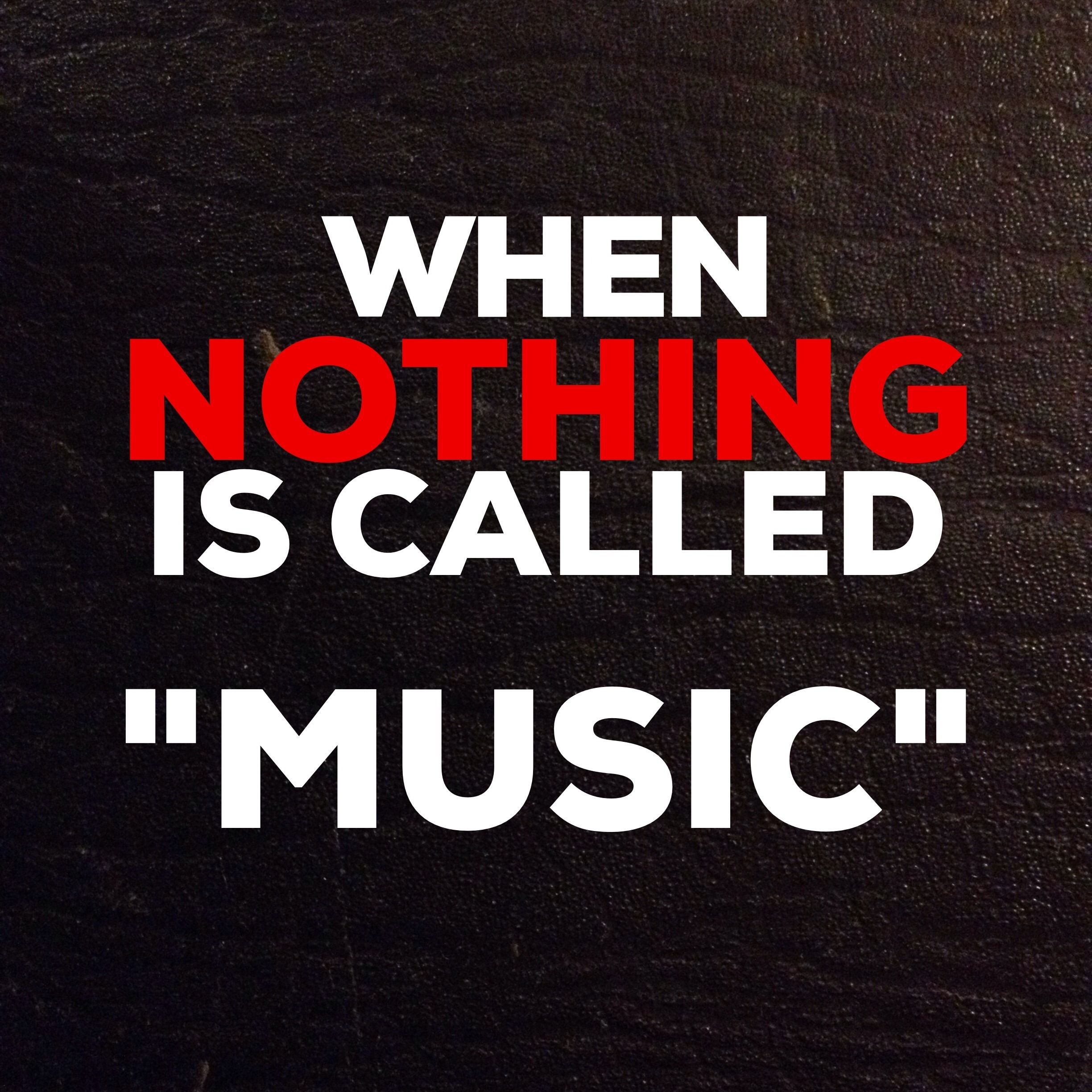- Episode 8. Without Music. The Creativity of All People: a Reformation
If all people are creative, what we believe about creativity indicates what we believe about humanity.
Without dogmatic barriers between 'sacred' and 'secular', creativity could flow in an unprecedented manner.
S1E8 - 5m - Jul 7, 2021 - Episode 7. Without Music: Hybridity and Future Prospects
Hybrid forms of creative expression challenge dogmatic terminology.
S1E7 - 4m - Jul 2, 2021 - Episode 6. Without Music: On Instrumentality (The Case of the Guitar Paddle)
A unity of abstractions is a self-contradicting idea since the point of abstraction is precisely the opposite of unity with others.
Instrumental specializations can form a unity, since specialized focus does not mean a detachment. This could be called a “non-dogmatic togetherness” – another way of saying “ecological composition.”
The movie scene discussed in the episode can be viewed here:
S1E6 - 6m - May 30, 2021 - Episode 5. Without Music: From Categories to the Sublime
Category-based thinking cannot be used to understand the whole. A different mindset is needed.
S1E5 - 4m - Apr 27, 2021 - Episode 4. Without Music: Ecological Composition
An ecological composition is an adaptation at the level of the composer: the act of composing is an act of adaptation, of dealing with one’s existence in the
environment one is in. The border between an ecological composition and its environment is like a cell membrane. There is a clear boundary, but it is also a process. An ecological composition emerges as the composer engages their environment creatively.
Adapting to one’s environment through creativity is necessary. It is not a cultural frill, it is not decoration, it is not avoidable without avoiding life itself.
It is vital.
Ecological composition is not a genre. It is a way of seeing any creativity. Removing the dogmatic concept of music opens the field up, when the dogma isn’t replaced with another. Practical boundaries remain like cell membranes, but a cell membrane is alive, not a stone-dead dogma.
S1E4 - 10m - Apr 9, 2021 - Episode 3. A World Without "Music": a Different Gesamt. Lack of abstraction, parlance of practice
What would a world without the word "music" look like?
How would it be different?
In the book, "When Nothing is Called Music," I have shared seven distinct points of change. This episode features the first two.
I'm reading from the pages 160-163. You can download the pdf for free if you like: https://taju.uniarts.fi/bitstream/handle/10024/6090/Acta_Scenica_60.pdf?sequence=1&isAllowed=y
S1E3 - 8m - Mar 28, 2021 - Episode 2: Facing Translation
The concept of music is a definition, a fiat, sheer dogma. This means that the "music mindset" is in denial.
The Redefiners have tried to redefine music in order to make it connect with reality, but this does not work. Redefining a definition does not change it: it's still a definition. IOW, denying the denial does not help.
Giving up the music concept means giving up fantasy (denial) and facing translation.
"Music" is the same in every language. There's only variation in spelling.
But "playing" or "sound" (etc) need to be translated.
"Music" is a word in denial. It creates a false fantasy structure.
"Playing", "sound", and other descriptive concepts are not in denial - they are vulnerable to translation.
S1E2 - 5m - Mar 20, 2021 - When Nothing is Called Music: Intro
What is this podcast about? Here's a quick introduction.
When Nothing is Called Music (the book) is available as a free pdf over here:
S1E1 - 1m - Mar 11, 2021
